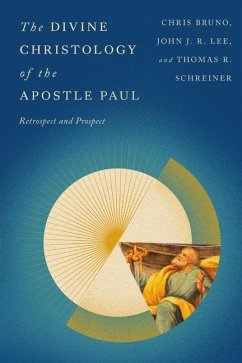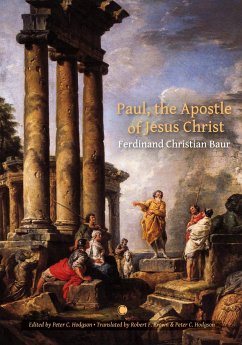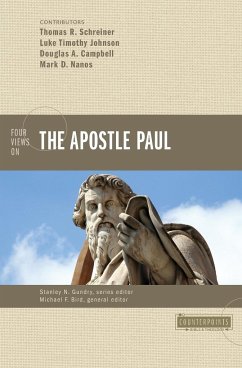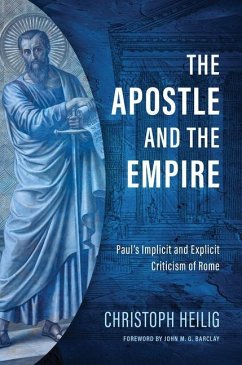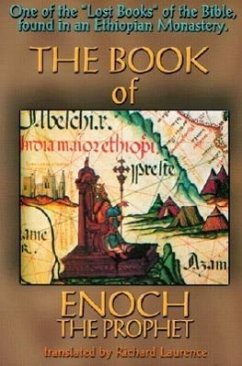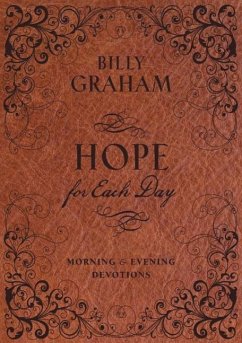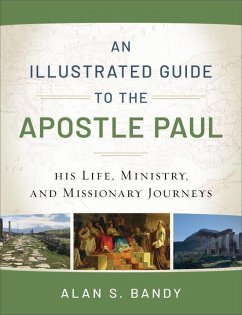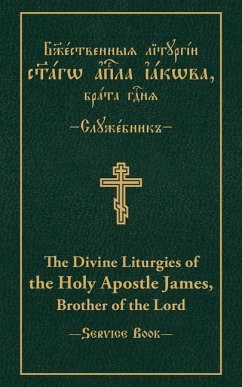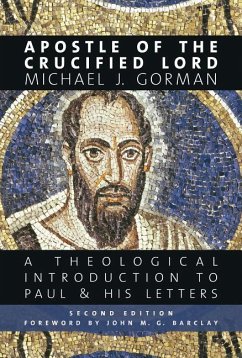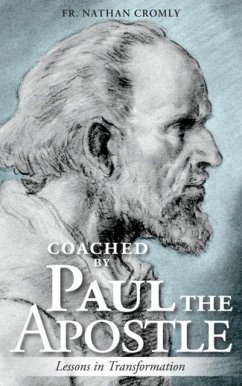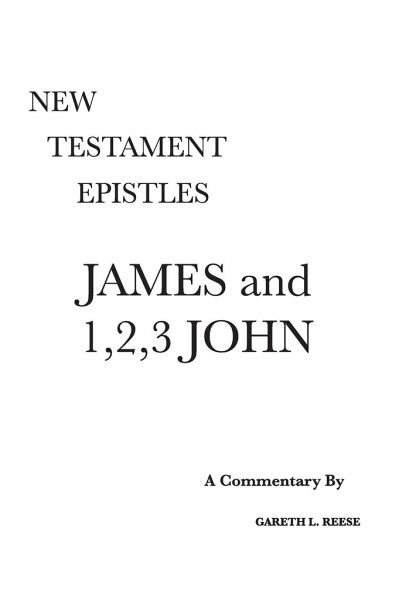
James and 1,2,3 John
A Critical & Exegetical Commentary
Versandkostenfrei!
Versandfertig in 1-2 Wochen
42,99 €
inkl. MwSt.

PAYBACK Punkte
21 °P sammeln!
This is a phrase-by-phrase commentary and exposition of the New Testament books of James and 1,2,3 John. This commentary is in use as a college textbook, yet is suitable for the lay church member. James and 1 John are written as epistles to Christians in general (i.e., not as letters to a particular church in Rome or Ephesus). Both were written by apostles we encounter often in the pages of the New Testament; both are men who played large roles in the life of the early Church. Each of these four epistles is unique within the New Testament canon, and each raises issues of interest and importanc...
This is a phrase-by-phrase commentary and exposition of the New Testament books of James and 1,2,3 John. This commentary is in use as a college textbook, yet is suitable for the lay church member. James and 1 John are written as epistles to Christians in general (i.e., not as letters to a particular church in Rome or Ephesus). Both were written by apostles we encounter often in the pages of the New Testament; both are men who played large roles in the life of the early Church. Each of these four epistles is unique within the New Testament canon, and each raises issues of interest and importance for our Christian faith and practice: The faultless roadmap for practical Christian living provided by the great spiritual principles taught by our Lord and Savior. The imperative need to receive the witness of God as given in Scripture through Jesus and His apostles. The fact that we have not followed myths when we embrace the doctrine of the powerful coming of our Lord Jesus Christ, God's Son, into the world to save sinners. The nature of true Christian fellowship - its exclusivity Godward and the kind of lifestyle it demands. How believers can know - by experience - the fact of their salvation. The loving way to counteract religious error. How Christians are to respond to those leaving the church. The parallels between 1st/2nd century Gnosticism and the pluralism and New Age theology of our 21st century. This commentary is conservative and evangelical Christian in its outlook, yet skillfully examines the Scriptures from multiple theological viewpoints. Introductory Studies cover authorship and attestation, the place and date of writing, original target audience to whom the letters were addressed, and the original purpose for writing. The Introductory Studies also discuss questions raised about these epistles by recent higher criticism - e.g., the relationship of James' theology to Paul's, the nature of the Gnosticism addressed in John's epistles, the theory of a Johannine community and its role (if any) in compiling epistles, and our ability to accurately reconstruct the life-setting of the 1st century Christianity which gave rise to each of these writings. Additionally, several Special Studies address important topics germane to these epistles. Since this commentary presumes the God-inspired nature of all Biblical writing, the author seeks to harmonize the teachings of James and 1,2,3 John with other relevant Scriptures, and also helpfully examines the original language in which the epistles were written. A fully annotated bibliography of other commentaries on James and 1,2,3 John is included to encourage readers to extend their own studies. This commentary continues the author's series on the books of the New Testament, and is written from the unique standpoint of the Restoration Movement, a position which allows him to approach Scripture with no special theological doctrine or dogma to defend and explicate. This approach provides an unhindered freedom to listen to what the Holy Spirit would tell us within the pages of the sacred Scriptures. By deliberately employing the time-honored grammatico-historical method of interpretation, the Word of God is allowed to impress upon our minds the intent the Divine Author had in mind. The author is Professor Emeritus of the New Testament at Central Christian College of the Bible (Moberly, MO).





